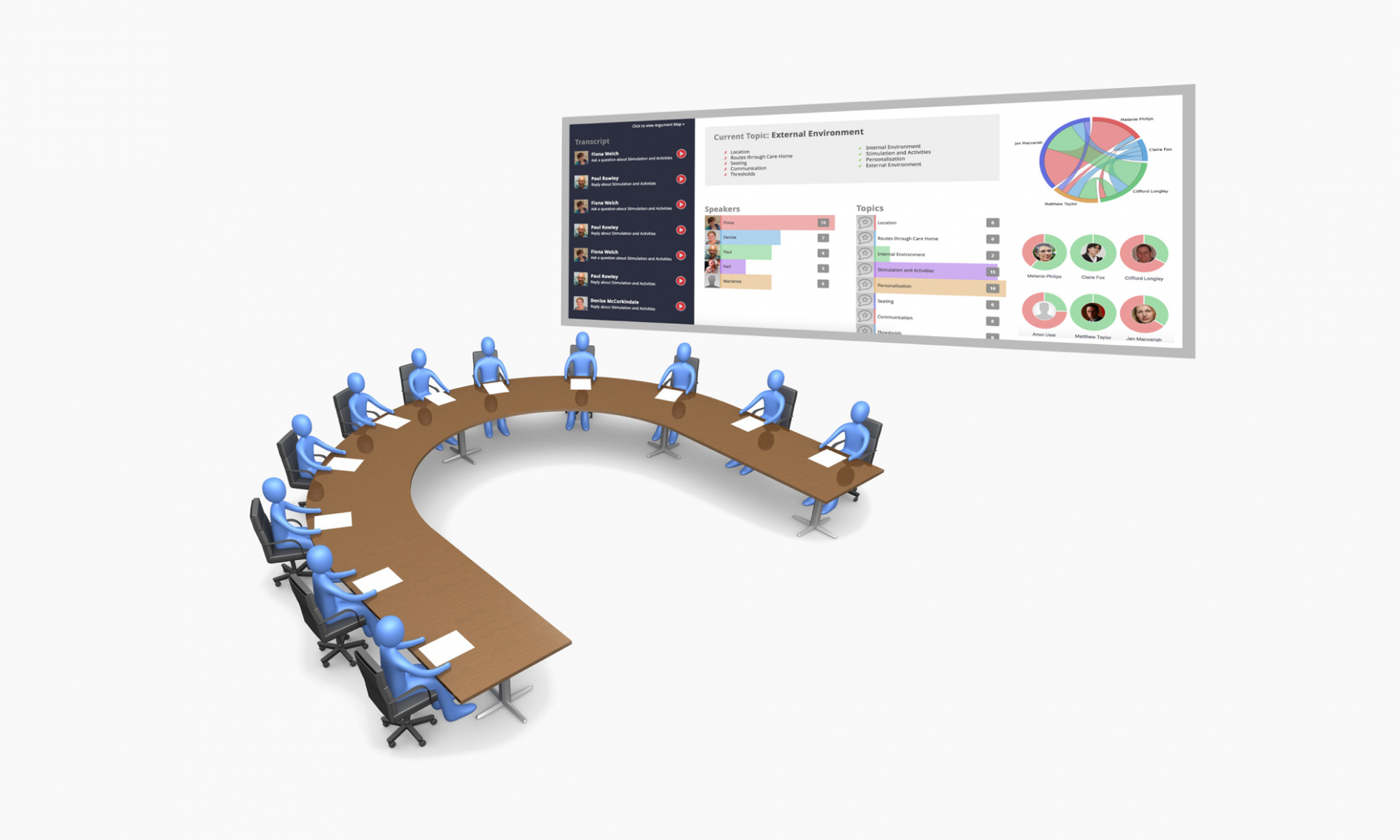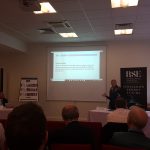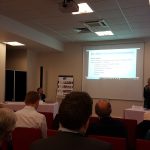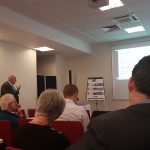Valentin Gold will present recent progress at the PolText Conference in Tokyo. The presentation focusses on the technical side of the project. In detail, we will present the ADD-up prototype software with a special focus on the argument mining pipeline.
Talk @ Göttingen Centre for Digital Humanities
Valentin Gold has presented recent progress of the ADD-up project on February 28, 2019, at the 7th. Göttingen / Hildesheim-Workshop on CL and DH, Göttingen Centre of Digital Humanities, Germany. The slides of the talk are here: [Link]
ARG-tech, CELab and ADD-up @ uni.kn
The MA colloquium at Konstanz’s Linguistics Department features a joint talk between members of ARG-tech, CELab and ADD-up on Monday, 26 November 2018. In `Argument Technology and Computational Ethos’, Chris Reed and Katarzyna Budzynska will talk about the following:
The establishment and growth of computational models of argument over the past 25 years has been a uniquely fruitful collaboration crossing disciplinary boundaries from humanities, through social and computational sciences, to engineering. Equally powerful as logos, the content of argument, is ethos, the character of the speaker, yet not well recognised by computational approaches. Most recently, argument mining in particular has enjoyed phenomenal success (followed in the last two years by ethos mining), exploding from nothing to a worldwide industry in barely half a decade. Despite ingenious theoretical creativity and ground-breaking innovative collaborations, the area has, however, largely struggled to deliver products and applications to end users. Why should this be? What are the challenges and dynamics that have stymied better uptake, and what can be done to improve this translational aspect? This talk draws on the experiences from the Centre for Argument Technology in the development of philosophical and linguistic theory, in the engineering of integrative and interoperable systems, and in working with a variety of partners. The goal is to unpack some of the connections between formal and human argumentation, and to explore the challenges and opportunities laying ahead of the field of argument technology and computational ethos.
ADD-up @ DQComm Conference
Valentin Gold will present results on identifying and extracting sequences of high deliberative quality on November 7 at the #DQComm Conference in Mannheim, Germany. The results contribute in building the ADD-up intervention system.
ADD-up COMMA 2018 Demo
Paper accepted at LEVIA
Again joining efforts with VALIDA, the paper ‘Augmenting Public Deliberations through Stream Argument Analytics and Visualisations‘ was accepted to the LEipzig symposium on Visualization In Applications (LEVIA). Authors are Brian Plüss, Fabian Sperrle, Valentin Gold, Mennatallah El-Assady, Annette Hautli-Janisz, Katarzyna Budzynska and Chris Reed.
Three papers with ADD-up contribution accepted at ArgDiaP 2018
We have contributed to three papers that were accepted at the ArgDiaP 2018 conference:
- Brian Plüss has a paper on ‘(Un)Fairplay in political debate‘, and the paper on ‘Empirically-driven Formal Model of Ethos‘ is a CELab contribution by Katarzyna Budzynska, Rory Duthie, Annette Hautli-Janisz, Marcin Koszowy, Martin Pereira-Farina and Brian Plüss; both presented at the 1st International Workshop on Methodologies for Research on Rhetoric (MET-RhET) on “Conflict and Controversy”.
- The paper ‘Time-constrained Multi-layer Corpus Creation’, by Katarzyna Budzynska, Martin Pereira-Farina, Dominic De Franco, Rory Duthie, Nuria Franco-Guillen, Annette Hautli-Janisz, Janier Mathilde, Marcin Koszowy, Luana Marinho, Elena Musi, Alison Pease, Brian Plüss, Chris Reed and Jacky Visser was presented at the main conference.
Three papers at COMMA 2018 and COMMA workshops accepted
COMMA 2018 (Computational Model of Arguments) will feature three ADD-up contributions. Our demo paper ‘ADD-up: Visual Analytics forAugmented Deliberative Democracy’ is a joint paper of VALIDA and ADD-up (authors: Brian Plüss, Mennatallah El-Assady, Fabian Sperrle, Valentin Gold, Katarzyna Budzynska, Annette Hautli-Janisz and Chris Reed), our paper in the ArgPhil workshop is about ‘Conventional Implicatures in Computational Argumentation‚Äô (authors are Annette Hautli-Janisz, Brian Plüss, Katarzyna Budzynska, Valentin Gold and Chris Reed) the one in the ArgSoc workshop us titled ‘Towards Deliberation Analytics: Stream Processing of Argument Data for Deliberative Communication‚Äô (authors: Valentin Gold, Brian Plüss, Mennatallah El-Assady, Fabian Sperrle, Katarzyna Budzynska, Annette Hautli-Janisz and Chris Reed).
Project meeting @ ARG-tech
Again a very productive and creative ADD-up project meeting, this time at ARG-tech in Dundee!
.@brianpluss, Annette Hautli-Janisz @unikonstanz & @__vgold__ @uniGoettingen giving a presentation @ARG_tech on the progress of our ADD-up project. Find out more at https://t.co/tFEF7vVppg pic.twitter.com/Ljyy4cQf0g
— ARG-tech (@ARG_tech) June 13, 2018
Public deliberations in the wild
Earlier this month, Brian Pl√ºss attended two public deliberation events in Scotland. The first one was part of the Royal Society of Edinburgh‘s inquiry on Scotland’s Energy Future and took place in Glasgow on 3 May 2018.
Have you got plans for this evening after the #AllEnergy conference today? Continue your energy-packed day with a visit to the IET Teachers' Building on the way home, drop in at 7pm and have a chat about your concerns for Scotland's Energy Future https://t.co/35DiYWd1gd
— The RSE (@news_RSE) May 3, 2018
The second event was organised by the UK Houses of Parliament Foreign Affairs Committee as part of their inquiry on Global Britain¬†and¬† was held in St Andrews on 10 May 2018. Continue reading “Public deliberations in the wild”



